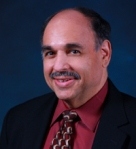After twenty plus years in human resource executive and management positions, my leadership style changed in several significant ways. This evolution was brought about by the changing demographics and expectations of newer, younger employees coming into the workplace. In a fundamental shift, generation X-ers and millenials are redefining traditional leadership concepts in ways that challenge our organizations. To be a successful leader today, one has to adapt his/her leadership strategies and techniques, and more significantly, we have to change the way we lead if our organizations are going to be successful in the competition for talented, motivated and passionate people, today and well into the future.
Over the past few years, I have engaged younger people in conversations about leadership. Those conversations resulted in learning that my “baby boomer” views about leadership characteristics do not “jive” with the current thinking of the up-and-coming generations. Here is what I have learned about what today’s leaders need to do to motivate and effectively lead their organizations.
Be Real – Results vs. Expertise
You can have all the credentials in the world, but if they do not equal results, younger employees will not care about your credentials, degrees and experience and will not recognize you as a leader. Today’s younger employees are not impressed with the letters of the alphabet that follow your name. Consider the example of Kevin Garnett, the professional basketball player. He came into the National Basketball Association directly from high school with no college basketball experience or degree. In a short time, he was an NBA All-Star. What we want to know is if he can put the ball in the hoop, and we are less concerned about how much he studied hoops. In today’s world, it is about results – but not results at any cost. As a “baby-boomer,” I always placed a high value on the credentials and experience of people who were leaders in organizations in which I worked.
Personality vs. Shared Journey
Leadership today demands someone who is not afraid to “get dirty” alongside employees. Even if they don’t have to actually pitch in with the work, it is important to value the work that employees are doing, and more important to make sure that the employees feel valued as people. Young people today want to know that leaders care about them and demonstrate that caring attitude in a variety of ways. “Getting dirty” with employees is one sure-fire way to impart that feeling. It is also critically important in our world of complex relationships, that leaders are willing to confront difficult situations head-on, in a principled and ethical way. Leaders who stay silent in the face of controversy will soon discover that employees will soon feel that they are “taking the fall” for their leader. This is not a very healthy situation.
Do You Know Where We Are Going?
Articulating a vision of the future is one characteristic of leadership that crosses generational lines. However, where the lines generationally part is over the question “Can the vision be achieved and will I be valued as your partner along the journey?” Leaders should be able to answer that question clearly.
Implications for Current and Future Leaders
There are several implications for current and soon-to-be leaders. Communicating a positive vision of the future is essential, but explaining why that particular vision is better than others and how it will benefit all is critical.
All the training, education and experience you have generally does not impress younger workers. Understand that newer, younger employees will respect you for your performance, not your job knowledge, and will value your leadership even more if you put them in positions to achieve great things within your organization. I think this is a significant challenge for leaders today, many of whom seek to minimize risk taking and simply are not willing to put younger workers in a position to take calculated risks out of a fear of failure.
Listen to employees. Create an environment that not only encourages feedback, but also active participation in the development of policy recommendations. However, before employees are comfortable talking, leaders have to strive to create trusting organizations. One way effective leaders can do that is to “walk the talk” and lead based on shared organizational principles.
Gone is the “one size fits all” aspect of traditional personnel management. Employees today want and need to be treated as individuals, and to be seen not merely as a job title on an organizational chart. They want and need to be respected, valued and trusted.
If you are in a leadership position in your organization, take some time to reflect on how your leadership style resonates with the younger employees in your organization. Are you convinced that your leadership style is effective? Are you sure that your style is valued and respected by all the employees in your organization? Finally, it is important for leaders today to understand their responsibility in developing the next generation of leaders. Are you willing to give younger employees the opportunity to be successful and achieve things that contribute to your organization’s success, or do you think that the best way to develop talent is simply letting nature take its course?
Citygate Associates has training available to assist your organization in developing leadership talent to meet the future demand for skilled, effective and passionate leaders. We custom-tailor training to meet the specific needs of your agency. In difficult economic times, effective leadership talent that crosses generational boundaries is more critical than ever. Please visit our website for further information, or contact Steve Harman by phone at (510) 599-5294 or by email at sharman@citygateassociates.com. Steve Harman directs Citygate’s Executive Search and Human Resources consulting, which includes succession planning, leadership development, and management training.
